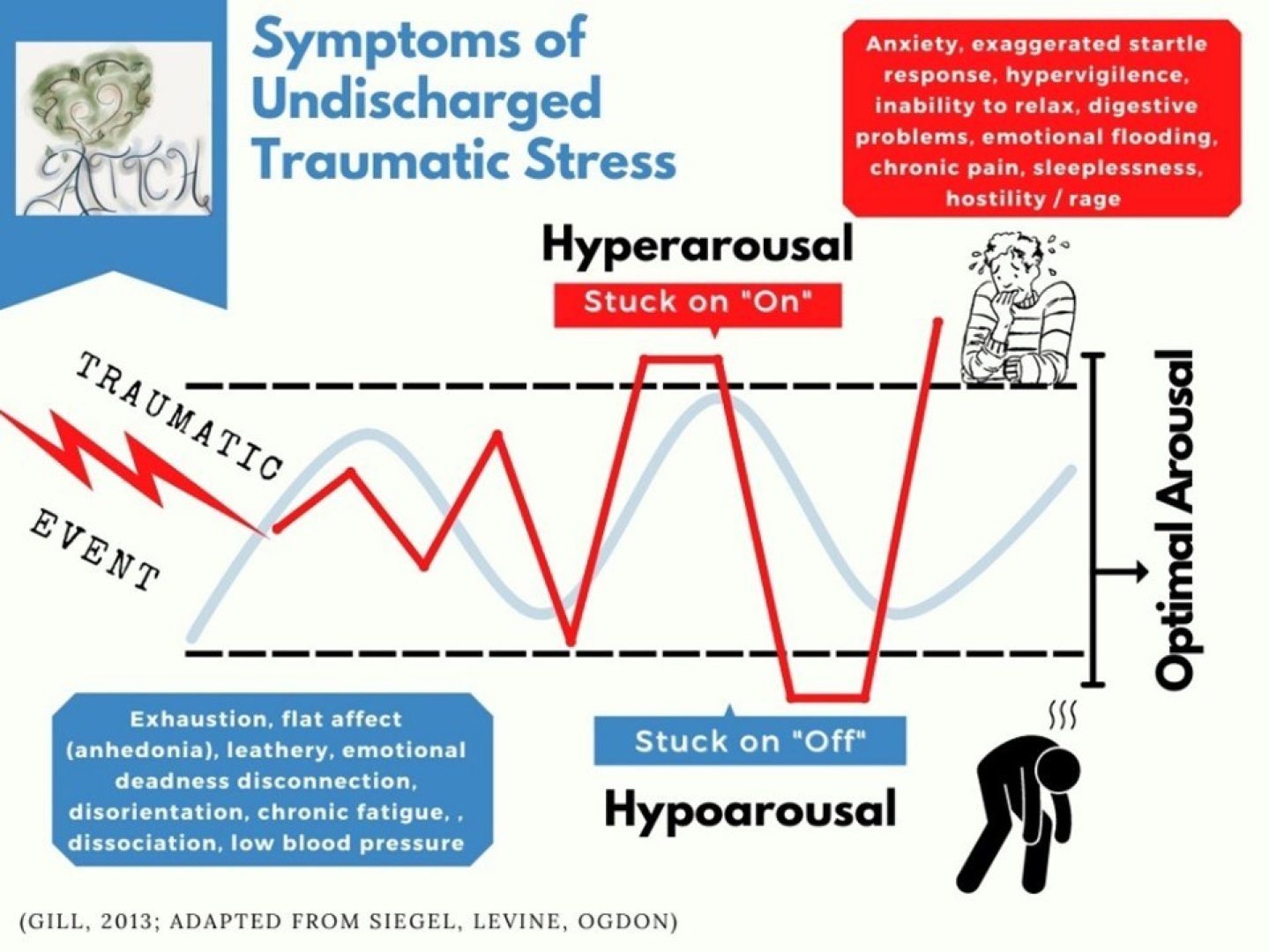Life is full of ups and downs. We all have our own ways of dealing with emotions, discharging stress or picking ourselves up when we are feeling down. It might be going to the gym, chatting with friends or using a mindfulness app such as ‘Headspace’.
Experiencing or witnessing a traumatic event such as a car crash or sudden loss can push us beyond our ‘window of tolerance’ or ability to cope. When the body’s fight-flight system is activated, you may find that your usual coping strategies aren’t sufficient. Following a traumatic event, many people experience sleepless nights, overwhelming emotions, and hyperarousal. It is also common to experience depressive, exhausted symptoms of hypoarousal.

There are many somatic techniques which have been developed to help us to regulate our bodies and emotions following trauma. Some techniques have been developed through modern science such as the TIPP technique and others, like yoga, have evolved over millennia.
Finding support
An important part of trauma-informed care and self-care is recognising our limits and knowing when to reach out for further support for ourselves or others. Although trauma can feel lonely, frightening, and isolating, there are in fact many people who have been on a similar journey and found a way through.
You will find professionals and experts by experience who dedicate their lives to shining a light in the darkest of places. They work to help you back to a place where you can find joy and meaning in life again.
Most good employers offer welfare services to their staff including free counselling, paid time off and social groups.
There are also many community organisations that provide a space for peer support. Mental Health Swims and Green Squirrel’s Railway Gardens Ways of Wellbeing project are two examples.
You don't have to cope alone
There is a tendency to view self-help and self-care as an alternative to formal support services. Many people find it difficult asking for help.
It is important that we can signpost someone we are concerned about to support services, but equally important that we are able to follow signposts to access the help that we might require when someone is trying to help us.
Here are some organisations you can contact if you are concerned about someone:
The levels of support
Most of the time self-care and informal community care (informal services) are sufficient to help us maintain our wellbeing. Sometimes it will be necessary to access primary mental health services by visiting a GP or calling 111 (mental health line). GPs can offer advice, social prescription for community activities or a referral to specialist mental health services (e.g. early intervention in psychosis services).
It is important to recognise that self-care is still necessary at every level of the pyramid of mental health, but there is also increasing recognition of the benefits of community mental health care over a hospital setting.
Personally, I currently access community mental health services and maintain a strong self-care routine. NHS and charity waiting lists can mean that we are relying on informal services longer; they can fill the gap and help you maintain stability while waiting for access to formal services to help you move past mental health struggles.
Trauma Informed First Aid aims to introduce a trauma-informed perspective to First Aid training. To find out more, and take part in a free workshop about post-traumatic self-care, click here.
Catherine Arnold
Trauma informed first aid trainer
Catherine Arnold formerly worked as a first aid trainer for the British Red Cross. After being involved in a serious road crash, she struggled with her mental health and found that delivering first aid training was triggering traumatic stress. She has since become an Expert by Experience for the NHS and volunteers for Traumatic Stress Wales. She would like to help people who have experienced trauma to learn first aid as part of their recovery journey.
